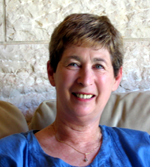
EILAT, Israel — A trip to this Red Sea city from Jerusalem is always a pleasure, and especially in the winter, when the weather in Jerusalem is cold and rainy. The four-hour drive takes one through the Judean Desert, along the Dead Sea, and down to the Negev. The mountains in Jordan, on the far side of the Dead Sea, look distant and romantic in shades of pink, yellow and purple, while on our side the mountains seem to be dusty and brown. One wonders if ours look romantic from the other side, and whether from close up those, too, are dusty and brown.
Along the way one also passes the caves of Qumran, the site where the Dead Sea Scrolls were found, brought to light by an accident of fate and obtained for Israel through the acuity of Yigael Yadin’s father, scholar and professor of archaeology, Eliezer Sukenik. A little further along we come in sight of Massada, the mountain on which King Herod built his winter palace and where the last Jewish zealots of the Jewish Revolt held out against the Romans, only to take their own lives rather than accept a fate of slavery. It also marks the archaeological site that was excavated by Yigael Yadin – almost a family business, one might say. In the springtime the Israel Opera gives spectacular performances of operas there to audiences numbering 7,000 at a time.
But we press on to Eilat, where last winter we attended the final weekend of concerts in the framework of the Eilat Chamber Music Festival. Outstanding musicians from Israel and abroad, among them Peter Wispelwey, Dejan Lazic, and Antony Pay, to name but a few, played some of the gems of the chamber music repertoire. The performances were given over two weekends, and in the intervening week young musicians from all over the world attended master-classes. The gala concert on the last day of the festival consisted of a performance of Bach’s St. John Passion performed by the Gabrieli Consort conducted by Paul McCreech. Personally, I found the performance a little too low-key for my taste. We were told that that’s the way Bach performed it, but I prefer a larger choir.
Earlier that day, however, we were treated to a spectacle of a different kind. The talented young musicians who had participated in the master-classes, three pianists and three violinists, ranging in age from 16 to 26 and originating from Israel, Russia and Holland, came on to the stage one by one and played for our delectation. The technical mastery and musicality these youngsters displayed left us all open-mouthed, and hopefully they will all go on to successful careers in their chosen fields.
The festival in Eilat is sponsored by one of Israel’s leading banks, as well as by the Eilat municipality and the British Council. The audience is drawn from local music-lovers as well as tourists and Israelis from other parts of the country who come to Eilat to get away from the winter in the north and enjoy the opportunity to hear some top-notch interpreters of chamber music. But the Eilat Chamber Music Festival has to compete with at least two other music festivals held in Eilat each winter, so that the auditorium in which the concerts were given was not always full.
Each year we are told that the future of the festival is uncertain, but each year it returns with even more stellar performers. So it is to be hoped that all those who have helped to fund it till now will continue to do so in the future, so that we can continue to benefit from its unique contribution to Israel’s musical scene.
*
Shefer-Vanson, a freelance writer and translator, is based in Mevasseret Zion, can be reached at dorothea.shefer@sdjewishworld.com This article initially appeared in the AJR Journal, published by the Association of Jewish Refugees in the United Kingdom.